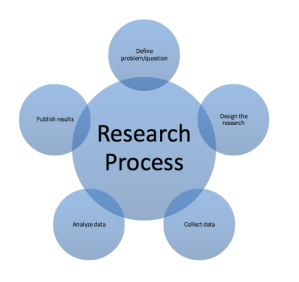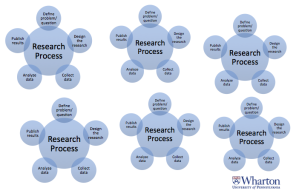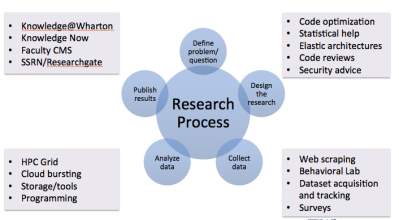Our team’s overarching strategic goal is to create a set of centralized and scaleable research-related IT services in order to attract and retain top quality researchers. Sounds simple, right? However at Wharton (and perhaps Penn), it turns out that teaching is much more efficiently and centrally served than research is (at least from an IT perspective). What’s the best way to attack the problem?
I tend to think of the research process like this:

Seems simple, right? However, multiply that out across the large number of researchers at Wharton and you start to see a fractured and idiosyncratic beast:

Moreover, there’s no set time cycle for when resources are needed and few standard tools to support the research process. So how do you scale and find efficiencies across such a disparate set of needs? One way is to map your teams’ activities and tools around points along the research process, like so:

Then you can start to work on each activity to make it either more repeatable, more scaleable or more self-serve. You need to have a customer-service mindset: Always be a partner in the process. You need to be vigilant in identifying custom work that can be made into re-usable tools and you need to be ruthless in outsourcing work that doesn’t fit the team’s strategic goals. Bottom line: FInd common problems and focus on solving those in a repeatable way and then get the word back out to your researchers so they know not to re-invent the wheel.


